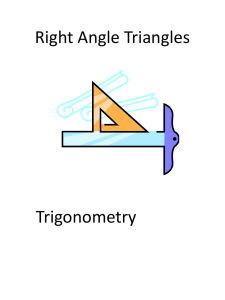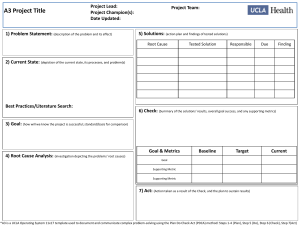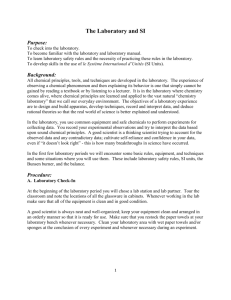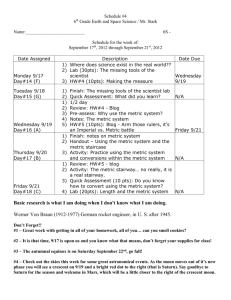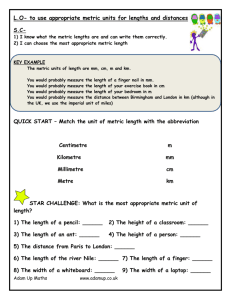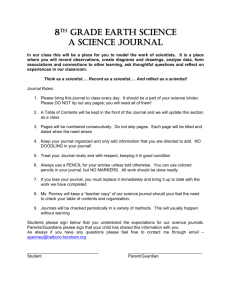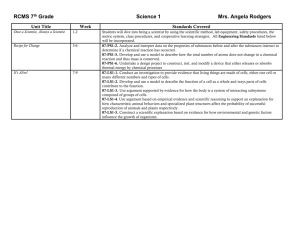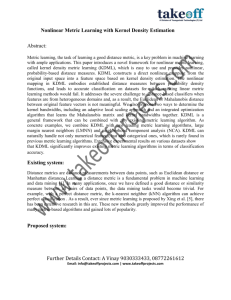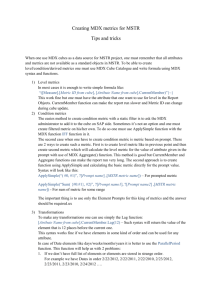FCAT Review-Measurements
advertisement
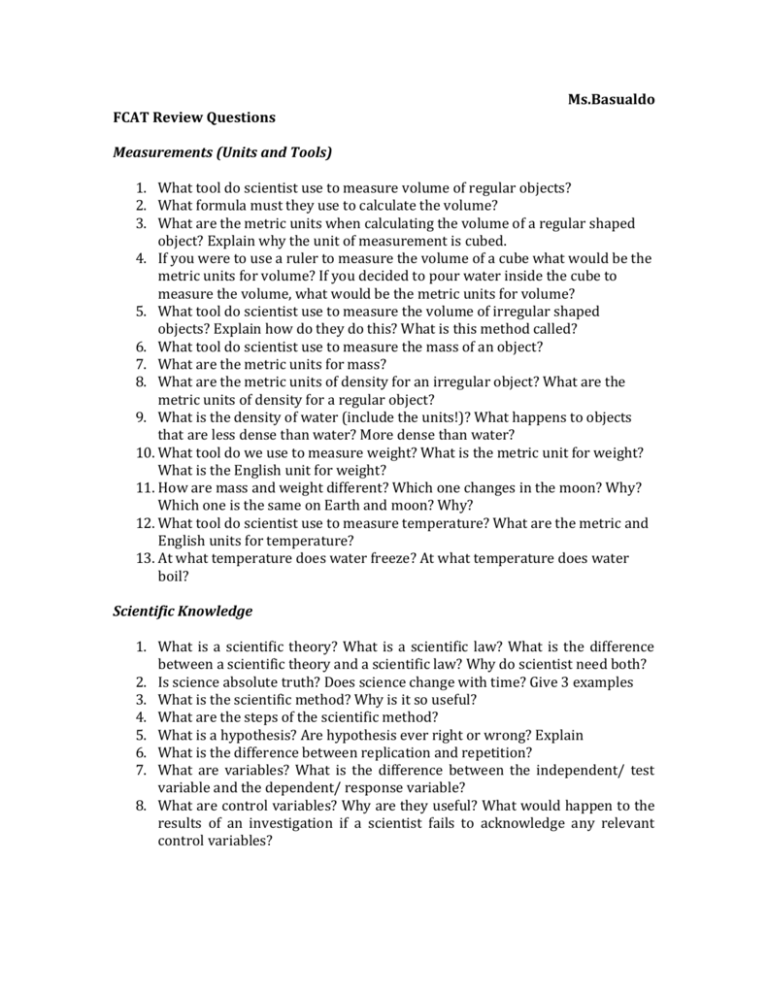
FCAT Review Questions Ms.Basualdo Measurements (Units and Tools) 1. What tool do scientist use to measure volume of regular objects? 2. What formula must they use to calculate the volume? 3. What are the metric units when calculating the volume of a regular shaped object? Explain why the unit of measurement is cubed. 4. If you were to use a ruler to measure the volume of a cube what would be the metric units for volume? If you decided to pour water inside the cube to measure the volume, what would be the metric units for volume? 5. What tool do scientist use to measure the volume of irregular shaped objects? Explain how do they do this? What is this method called? 6. What tool do scientist use to measure the mass of an object? 7. What are the metric units for mass? 8. What are the metric units of density for an irregular object? What are the metric units of density for a regular object? 9. What is the density of water (include the units!)? What happens to objects that are less dense than water? More dense than water? 10. What tool do we use to measure weight? What is the metric unit for weight? What is the English unit for weight? 11. How are mass and weight different? Which one changes in the moon? Why? Which one is the same on Earth and moon? Why? 12. What tool do scientist use to measure temperature? What are the metric and English units for temperature? 13. At what temperature does water freeze? At what temperature does water boil? Scientific Knowledge 1. What is a scientific theory? What is a scientific law? What is the difference between a scientific theory and a scientific law? Why do scientist need both? 2. Is science absolute truth? Does science change with time? Give 3 examples 3. What is the scientific method? Why is it so useful? 4. What are the steps of the scientific method? 5. What is a hypothesis? Are hypothesis ever right or wrong? Explain 6. What is the difference between replication and repetition? 7. What are variables? What is the difference between the independent/ test variable and the dependent/ response variable? 8. What are control variables? Why are they useful? What would happen to the results of an investigation if a scientist fails to acknowledge any relevant control variables?
